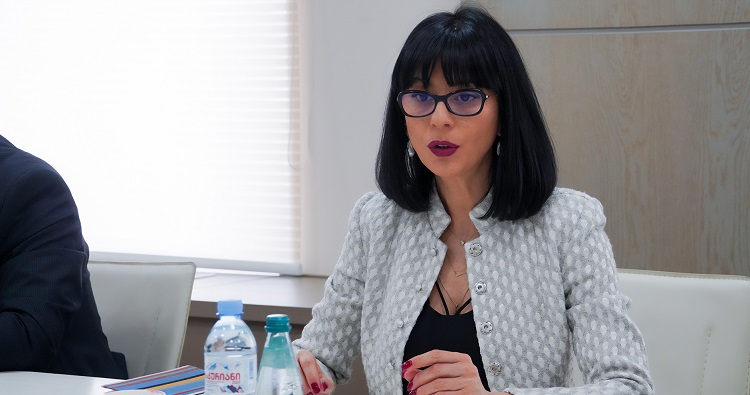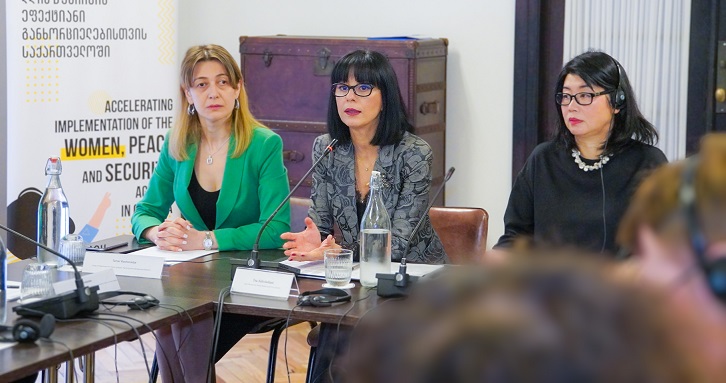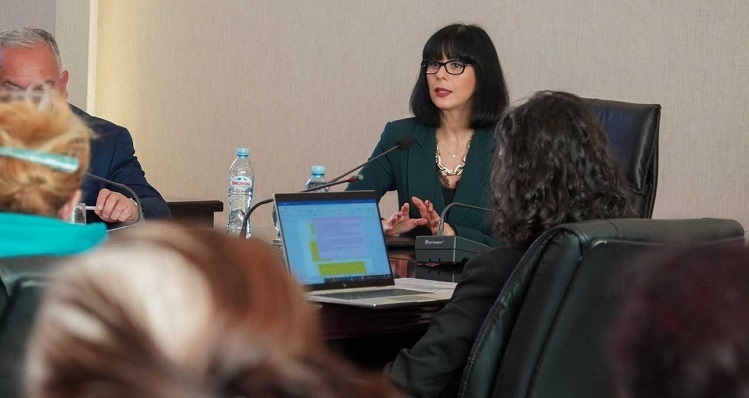Reconciliation Minister discusses conflicts, peaceful resolution with UN representative

Thea Akhvlediani, the Georgian State Minister for Reconciliation and Civil Equality, hosted Jihan Sultanoglu, the UN representative in the Geneva International Discussions. Photo: Reconciliation Ministry press office
Thea Akhvlediani, the Georgian State Minister for Reconciliation and Civil Equality, on Wednesday met with Jihan Sultanoglu, the United Nations representative in the Geneva International Discussions, to discuss conflicts in the country and ways for their peaceful resolution.
The Tbilisi meeting stressed the importance of the Discussions - the only international platform addressing security and humanitarian consequences of the Russia-Georgia 2008 war - and lauded the UN’s engagement in it as a Co-chair along with the European Union and the Organisation for Security and Co-operation in Europe, the Reconciliation Ministry said.
The officials highlighted the significance of the ongoing negotiations and stressed the “urgent need” for progress on the agenda, with a specific emphasis on addressing humanitarian issues.
The meeting delved into the “severe consequences” resulting from the illegal occupation of Georgia’s Abkhazia and Tskhinvali (South Ossetia) regions by Russia and “gross violations” of the rights and fundamental freedoms of the local population, including illegal detentions, restrictions on free movement, ethnic discrimination, and the prohibition of education in the native language. The erection of illegal barriers such as barbed wire along the occupation line was also addressed.
Akhvlediani stressed the imperative of “sustained efforts” by international partners, including the co-chairs of the GID, to secure the “immediate humanitarian release” of all unlawfully detained Georgian citizens in the de facto regions, and pointed to the importance of holding those responsible for killing Georgian citizens over the years accountable for their actions.
Providing insight into Georgia's reconciliation and engagement policy, the Minister briefed the UN representative on the achieved results and future visions.
She noted the Government policy aimed to enhance socio-economic conditions for communities affected by the conflict and foster cooperation and trust-building within the artificially divided society based on common interests, with the visiting official commending the efforts in advancing the peace process.
The GID format was established as part of the ceasefire agreement of August 12, 2008, brokered by the EU, between Russia and Georgia, and along with co-chairs it involves participants from the central Georgian Government, Russia and the United States, as well as de facto authorities from both regions.
Sessions are held in two working groups, with the first group discussing peace and security, and the second reviewing humanitarian issues.
 Tweet
Tweet  Share
Share



